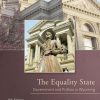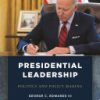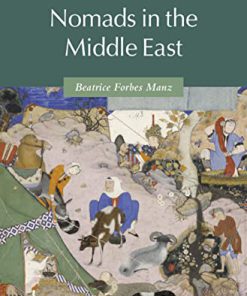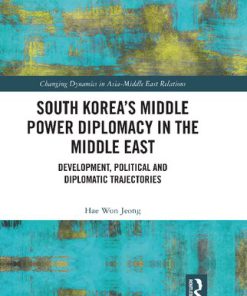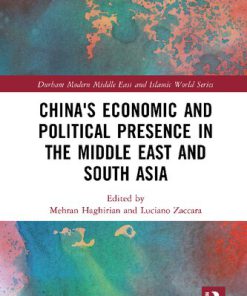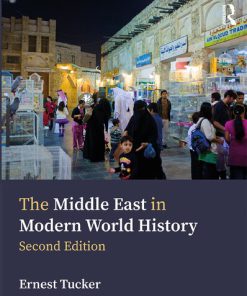Economic Development in the Middle East 3rd Edition by Rodney Wilson ISBN 0367512815 978-0367512811
$50.00 Original price was: $50.00.$25.00Current price is: $25.00.
Economic Development in the Middle East 3rd Edition by Rodney Wilson – Ebook PDF Instant Download/Delivery: 0367512815 978-0367512811
Full download Economic Development in the Middle East 3rd edition after payment
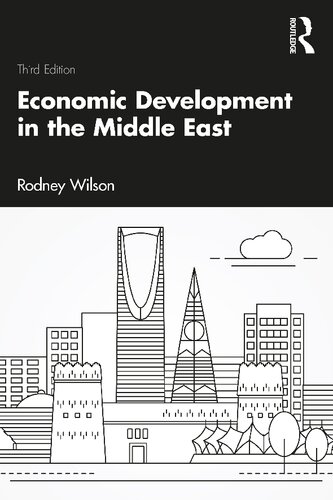
Product details:
ISBN 10: 0367512815
ISBN 13: 978-0367512811
Author:Rodney Wilson
This new edition examines how development in the Middle East is being influenced by global economic change. This comparative textbook focuses on the region’s strengths, and highlights development success, especially in the Gulf, Turkey and Israel. The major structural changes in the economies of the Middle East are analysed and current employment challenges are discussed.
The impact of demographic changes is considered, notably the dramatic decline in birth rates which will have implications for future employment. The contribution of banks and capital markets to the region’s development is appraised, including that of Islamic financial institutions which play a prominent role in the Gulf Cooperation Council (GCC) countries but are on the margins of the financial systems elsewhere. Historically, development in the GCC was linked to oil and gas production and prices, a key issue being whether these are being decoupled as economies diversify and become more self-sustaining. The evidence on this from the GCC is encouraging, with transparent and accountable financial management and major improvements in economic governance despite the lack of democracy.
Examining the drivers of economic development in the Middle East in a regional and global context, this fully updated textbook is a key resource for students and academics interested in economic development and the political economy of the Middle East.
Economic Development in the Middle East 3rd Table of contents:
1. Introduction
Aim
The context
Approach
Perspectives on development
Geographical coverage
The period under review
Issues and themes
Regional versus country perspectives
Questions for review
2. Modelling Middle East economic development
Three theoretical explanations of underdevelopment
The stages of economic growth in the Middle East
The theory of dependency and the “flying geese” metaphor
Pre-conditions for self-sustaining development
Middle East markets as bazaar economies
Theories of the role of the state
Theorising on Middle Eastern development
Questions for review
3. Growth and structural change
The economic inheritance
Gross domestic and gross national product (GDP and GNP)
Nominal and real income
Growth projections
The wealth of nations
Investment in transport and infrastructure
The state of land and agriculture
Industrialisation and development
The contribution of services to economic activity
Economic structure and development
Leading sectors and unbalanced growth
Modernisation and structural transformation
Questions for review
4. Population growth and employment
The demographic transition
Education and human capital formation
Manpower planning and career choice
Labour surplus models
Unemployment and underemployment
Urbanisation and population distribution
Emigration and migration
The economic effects of international labour mobility
Social costs and benefits of migration for the host country
Questions for review
5. Capital markets, savings and investment
Financial intermediation and development
The spread of indigenous banks
Nationalisation of banking
Banking regulation
Financial penetration
Currency standards and exchange
International borrowing and government debt
Financial flows and the financing gap
Offshore banking
Stock market development and equity finance
Foreign investment flows
Questions for review
6. An Islamic model for economic development
The position of Islamic economists
The methodology of western and Islamic economics
Sources of Islamic economic philosophy
Islamic views on trade and commercial activity
Just rewards in an Islamic economy
Incentives and aspirations in Muslim society
The prohibition of riba
Charity versus lending
Islamic profit sharing
Islamic financing
Islamic banking development
Islamic taxation
Islamic insurance
An Islamic future!
Questions for review
7. Oil and development
The costs of oil extraction
Quality, price and demand
The politics of oil supply
OPEC control over supplies
OPEC as the price maker
OPEC as a cartel
Limit pricing with OPEC as the residual supplier
Optimal depletion and time preferences
Oil reserves and production
Oil pricing
Predicted and actual oil prices
Spot, future and options oil pricing
Oil products and refining
Downstream diversification into petrochemicals
Gas reserves and production
Oil and development
Questions for review
8. International and intra-regional trade
Trade and development
Commodity and merchandise trade
Trade deficit problems
The terms of trade
Export diversification
Euro-Arab trading relations
Europe and Arab-Israeli differences
Oil and petrochemical trade
Foreign receipts and payments for commercial services
Arab economic integration
The extent of regional trade
Conclusions
Questions for review
9. The role of the state
Governments and economic decision taking
Economic power and appropriation
The fiscal position
The military expenditure priority
The costs of conflict
Development planning
Economic liberalisation and structural adjustment
Nationalisation and privatisation
Development and democracy
Perceptions of corruption and the Arab Spring
Questions for review
10. Globalisation
Westernisation and globalisation
Measuring globalisation
Implications of globalisation for development in the Middle East
China and the Middle East
The changing role of Russia
Middle Eastern representation in international institutions
Nationalism versus globalisation in the Middle East
Questions for review
Bibliography
People also search for Economic Development in the Middle East 3rd:
economic development in the middle east
economic development of the middle colonies
economic problems in the middle east
economic development in the middle east and north africa
economic development in middle colonies
Tags:
Rodney Wilson,Economic Development,Middle East
You may also like…
History - Islamic History
Politics & Philosophy - Politics
Politics & Philosophy - Women's Studies
Women Entrepreneurship and Development in the Middle East 1st Edition Beverly Dawn Metcalfe
Politics & Philosophy - Politics
Political Civility in the Middle East 1st Edition by Frederic Volpi ISBN 0415696569 9780415696562
Uncategorized
Uncategorized
Business & Economics - Others
History - Middle Eastern History
Political Faultlines in the Middle East 1st Edition Kingshuk Chatterjee
Politics & Philosophy - Anthropology
The Middle East in Modern World History 2nd Edition Ernest Tucker

